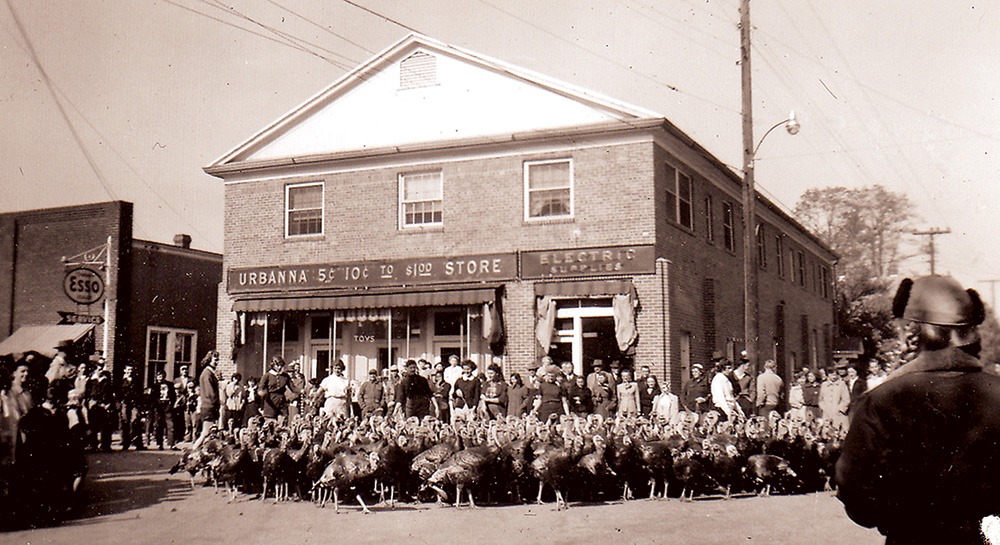
(Editor’s note: This is the fourth and final in a series of background stories submitted as part of Urbanna Founders Day celebration, which was officially observed Aug. 1.)
by Barbara Lovelace –
Urbanna Founders Day 2020’s “virtual” presentation concludes this week with “the rest of the story” about Urbanna. Actually, the story is ongoing, of course, but Sentinel readers may wonder — with the new town finally established in 1708, and the next 50 years’ growth spurt in tobacco warehouses, taverns, a Scottish factor store, and a customs house — what happened next?
As Urbanna became the county seat and the legal and commercial center of Middlesex, its founders and early residents spawned a vital entrepreneurial spirit whose story needs to be told.
A few highlights will have to suffice, however.
Dramatic changes brought about by the ebbing of the tobacco trade, and the rise of farming, oystering and fishing, boating and tourism, and so much more over the next 300 years, saw Urbanna flourish in ways the founders could never have envisioned. Always tempered by social change, economic cycles, and wars (six or more, depending how you count them), a few examples from Sentinel reporter and author Larry Chowning’s “Signatures in Time” book will showcase the town’s enduring entrepreneurial character, which has not only survived, but thrived.
Take for example, the civic and mercantile snapshot of Urbanna in 1835: “A port village and a seaport town with a population of 175, with ordinary county buildings, nine private dwellings, four mercantile stores, two taverns, one cabinet maker, one tailor, one carriage maker, two resident attorneys, four regular physicians, seven officiating ministers of the Baptist church, and steamboats to Fredericksburg and Baltimore.” The town is beginning to flourish.
Or consider the town businessmen’s actions in 1859 to build a bridge across Urbanna Creek to counter the economic blow the town sustained when the county seat was moved to Saluda. Then again, after surviving the Civil War and the turbulent years of Reconstruction, entrepreneur and Civil War veteran Charles Palmer returned to Urbanna from 1874 to 1895 to build beautiful Victorian homes and the stately Urbanna Baptist Church.
Not to be outdone, W.C. Fitzhugh advertised Ross House, his new boardinghouse for early 20th-century steamboat visitors to Urbanna, featuring amenities such as “magnificent shade trees, bathhouses, and a livery at $5 a week.” R.S. Bristow opened his general merchandise store on the corner of Virginia and Cross streets in 1896. Entrepreneurs all, steady at work.(A hard-working business person in the early decades of the 20th century was Columbus (Lum) Burton, who owned Burton’s Steamboat Wharf in Urbanna, and for years was the area’s most well-known craftsman of wooden shafts for band oyster tongs. This time period also saw the creation of the Urbanna Manufacturing Company, making overalls and shirts, and the subsequent building of homes on “Cottage Row” to house its workers.The 20th century also saw the creation of the Urbanna Board of Trade, the Lord Mott tomato factory, the pickle factory at Gressitt Wharf at the foot of Virginia Street, and a thriving dairy farm just outside of town, with deliveries door-to-door to town residents. Virgil H. Gill’s nearby turkey farm, operating until 1975, was one of the largest turkey hatcheries east of the Mississippi River. Thomas F. “Doc” Marshall opened Marshall’s Drug Store, and J.T. Thrift began a fuel distribution business.
Urbanna can even boast an inventor: Charles Henry Palmer, son of the 19th-century builder, who received a patent for the invention of the four-cycle marine motor. Entrepreneurship boomed in Urbanna.
Restoration of the “Old Tobacco Warehouse,” now known as the Scottish Factor Store, was a decades-long activity of concerned citizens and business leaders who rallied to ensure this historic landmark was preserved as a keystone piece of Urbanna’s history. Today’s 21st century entrepreneurs — some still growing local businesses decades old, and building other businesses in town while striving to promote Urbanna as a destination — have crafted this 18th-century building into a thriving visitor’s center.
And so one comes full circle, back to the Scottish Factor Store, that anchored this story. The single thread of entrepreneurship connects one humbly to Urbanna’s founders. It is a heritage to be proud of, and one celebrated on Founders Day.


